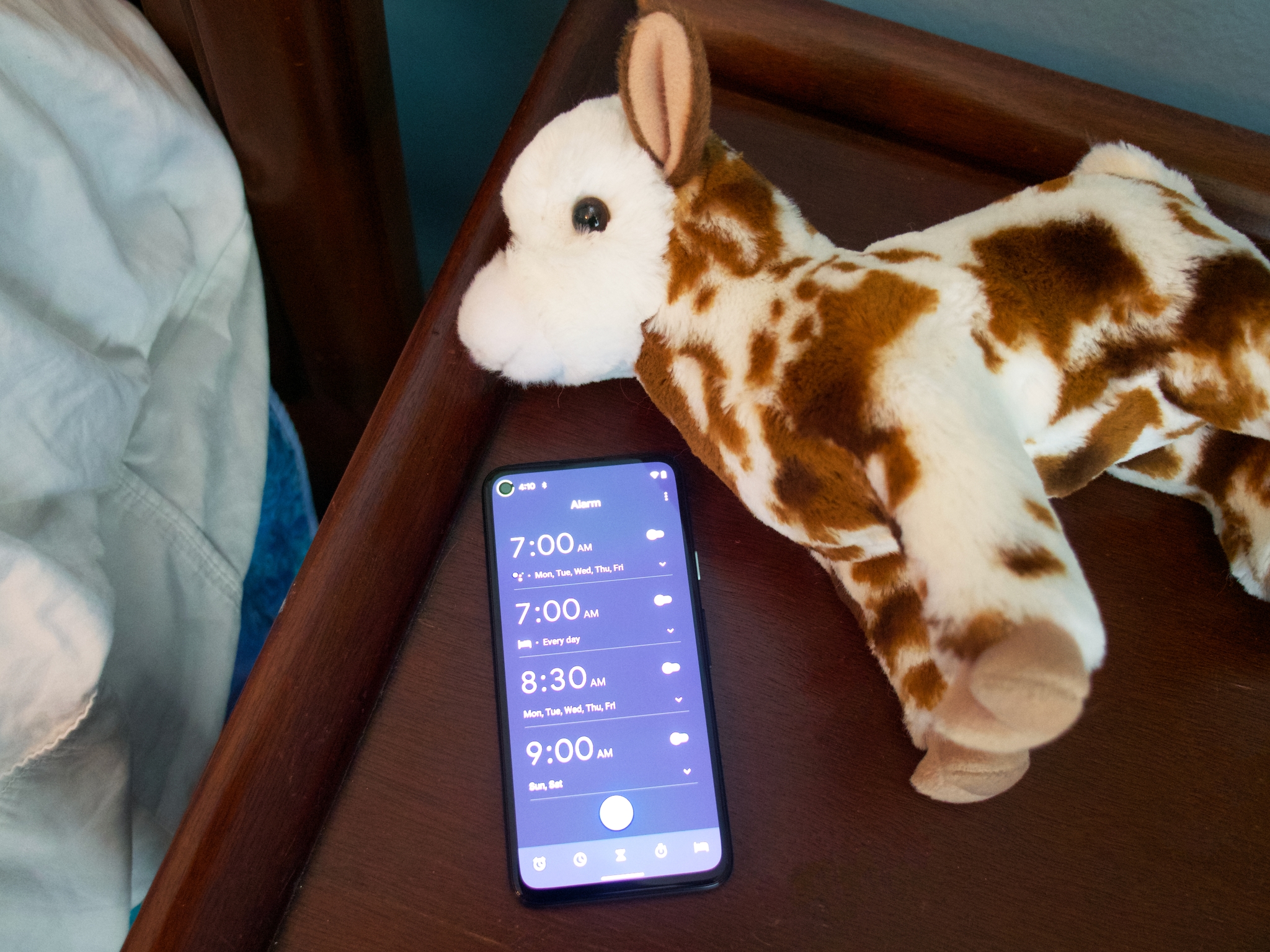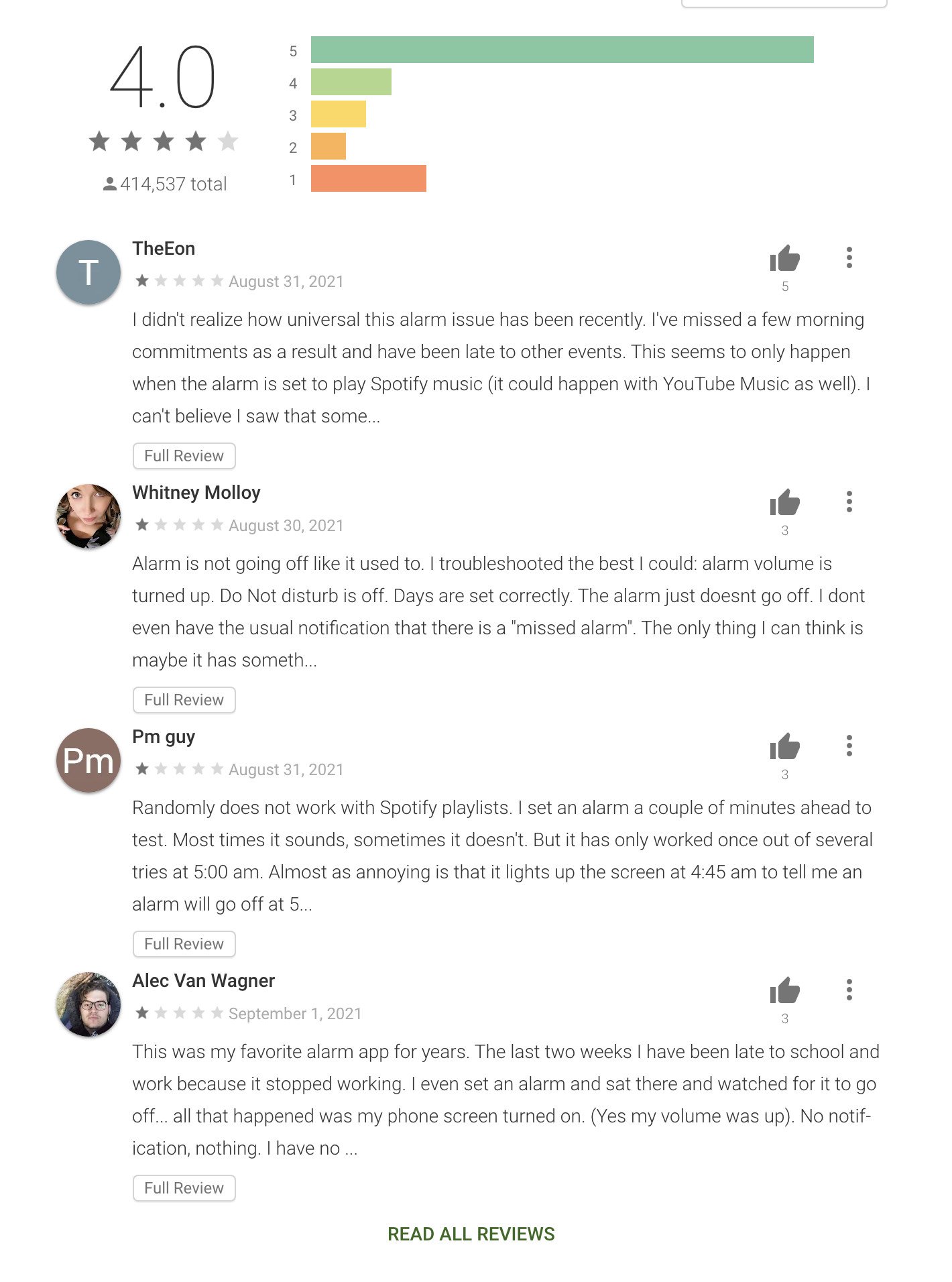You snooze, you lose?
Update, Sep 6 (2:15 a.m. ET): Google confirms a fix is on the way
What you need to know
- Many angry Android users are reporting issues with Google's Clock app and alarms.
- The bug is apparently affecting several different devices, including Pixel phones.
- Customers are also reporting issues with Spotify's integration with their alarms.
Android Central recently received a tip from a reader that many Android users have been experiencing issues with Google's stock Clock app over the past week. The tipster pointed us to a r/GooglePixel thread on Reddit where the issue was being discussed, and also mentioned the spate of 1-star reviews that the app has been receiving lately on the Google Play store.
Angry app users have been complaining that their alarms in the Clock app are not going off as expected and that they are not receiving alarm notifications either. There have also been complaints that alarms are no longer working with Spotify playlists, and some users have even speculated that the Spotify integration might be the cause of the issues.
It appears that the bug has only recently cropped up over the past week or so, as all of the negative reviews on Google Play and comments on Reddit are from this time period. In fact, as of this writing, the Clock app still has a 4.0 rating on Google Play, despite these recent unhappy customers.
Android Central has reached out to Google to comment on this bug and learn if the issue is isolated or more widespread, but we have not heard back at the time of publication. We will update this story accordingly if and when Google responds.
If you've recently been affected by this alarm clock bug, it might be worth considering picking up a dependable backup alarm clock in the interim. Some of our favorite alarm clock alternatives include the newest smart displays from Google and Amazon, like the Nest Hub (2nd Gen) or the Echo Show 5 (2nd Gen). Both are purpose-built for the nightstand, and both serve as functional backups to your phone's alarm clock.
The Nest Hub (2nd Gen) can even utilize its Soli radar sensors to analyze your sleep patterns, giving you better insight into how well you're really resting throughout the night. Similar features are also available on fitness trackers and smartwatches, which can also double as reliable alarm clocks.
Have you experienced this issue on your Android phone? Let us know about it in the comments.
Update, Sep 6 (2:15 a.m. ET) ― Google will soon roll out a new update to fix the bug
A Google support rep has confirmed that the next Google Clock update will fix the issue. The update is expected to be rolled out "soon." In the meanwhile, Google recommends changing the alarm sound setting to a selection within Device sound.
Source: androidcentral

